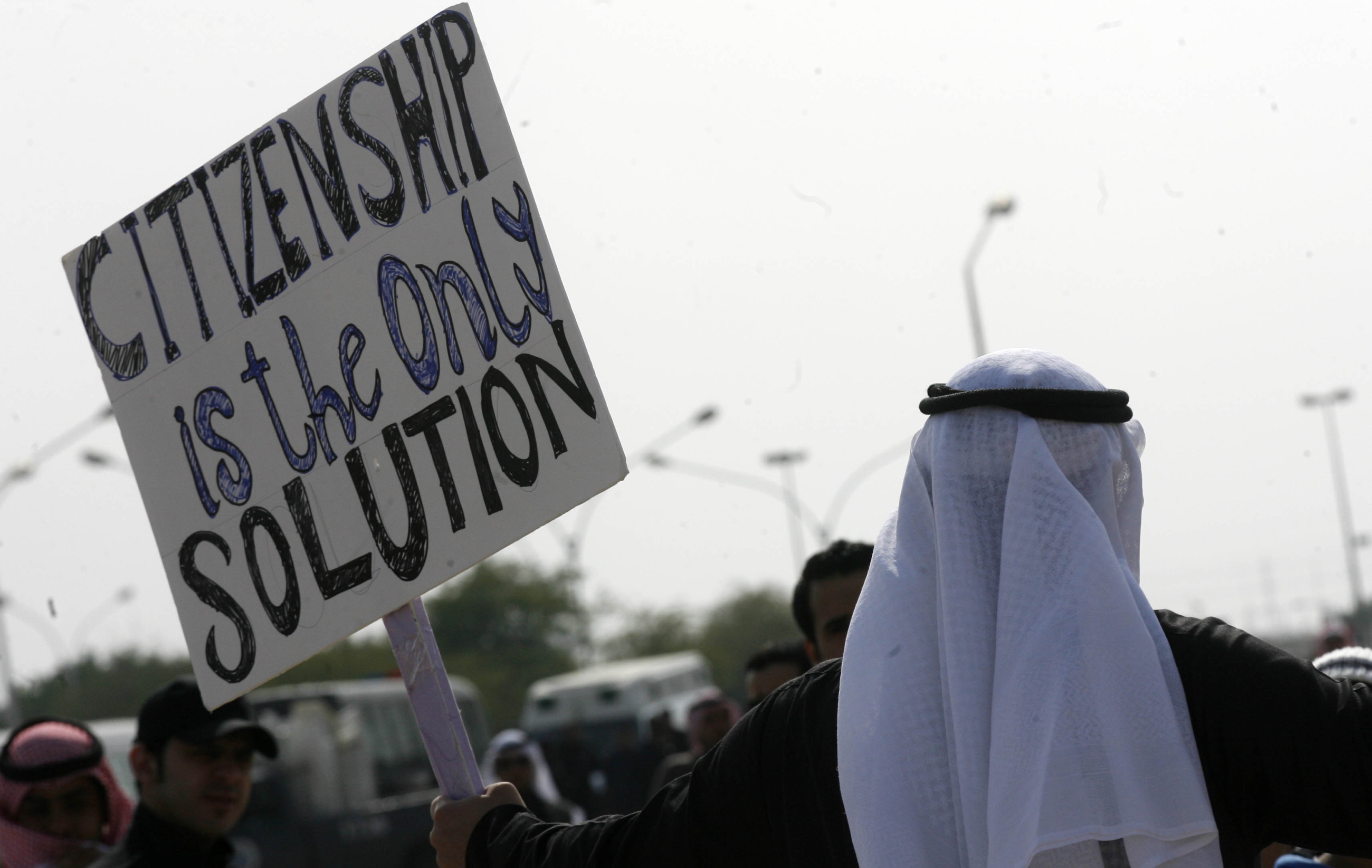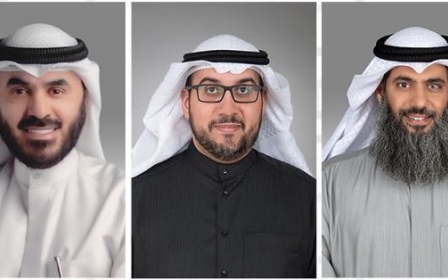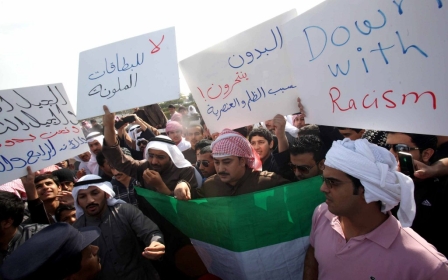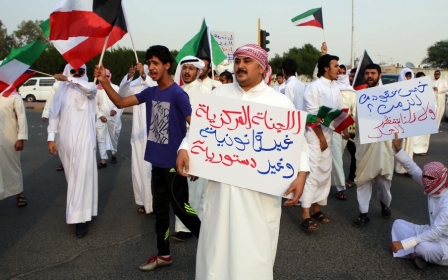Uproar in Kuwait as minority Bidoon man attempts self-immolation in protest

A Kuwaiti man attempted to kill himself by self-immolation on Monday, in protest against his living conditions in the Sulaibiya region, Kuwaiti media reported.
The 27-year-old man, Talal al-Khulaifi, is from Kuwait’s Bidoon minority which, according to several human rights organisations, has suffered ethnic cleansing, genocide and marginalisation at the hands of the Kuwaiti state.
Khulaifi survived his attempt on his life, but suffered severe burns.
Online, users have responded with outrage by calling on Kuwaiti officials to end the suffering of the Bidoon community, using the hashtag “Bidoon suicide in Sulaibiya”.
The environmental racism, poverty and institutional violence that Kuwait’s Bedoon population deals with has caused generational trauma and will continue to, systemic changes MUST be made! #انتحار_بدون_بالصليبية
— Mariam (@Mariam__AlSaad) December 28, 2020
انتحار البدون جريمة مرتكبها المتسبب عبر خلق تلك المشكلة والضروف القاسية المجني عليه هو المعدم المحروم الذي حاول الخلاص من هذا الجحيم الطويل ربما لجحيم اطول او رحمة وسعت السماوات والارض وفي الاخير الواجب علينا انهاء المعاناة ومحاسبة المتسبب بها #انتحار_بدون_بالصليبية
— سايكس بيكو قطعة ١٢ #التطبيع_خيانة ونصرته (ص) شرف (@kotz_100) December 29, 2020
Translation: The suicide of the Bidoon is a crime, the perpetrator of which is the one who is responsible for creating this problem and these harsh conditions. The victim is the deprived person who tried to gain salvation from this long hell. In the end we must end the suffering and hold the perpetrator accountable.
Meanwhile, some users have expressed their sympathy for the Bidoon community and the discrimination they face, which has led many to take their own lives.
#انتحار_بدون_بالصليبية What is more heartbreaking is that he used the worst method to commit suicide. Just reflect what makes a person reach a point of their life where burning themselves is more merciful that living💔
— メ (@id6ii_) December 29, 2020
My heart aches for the poor stateless community who endure so much injustice in a “humanitarian” country. To think suicide is the answer and yet, there is no response from the people powerful enough to do something about this....
— Anfal (@anfalalajmi_x) December 27, 2020
لا حول ولا قوة إلا بالله#انتحار_بدون_بالصليبية
أخشى أن يرسخ الانتحار كحل في عقول الشباب البدون، صدقني انتحارك ليس حلًا، لا تدعهم يسلبون الحياة منك كما سلبوا بقية حقوقك، لا تدع هذه الأرض لهم، قاتل لأخر رمق و لأخر نفس، لا أريد أن أعيد الكلام المبتذل لكن إياك والاستسلام، إياك أن تتركها لهم كما يريدون.
— مِسْك (@imiiisk) December 28, 2020
Translation: I fear that suicide has become a solution in the minds of Bidoon youth. Believe me, your suicide is not a solution, do not let them take away life from you as they have robbed you of the rest of your rights, do not leave this land to them. Fight for the last breath.
One source told Sama News that Khulaifi tried to kill himself following his dismissal from his job, after he had failed to renew his security card, which Bidoon need in order to work. Khulaifi is said to have blamed the Kuwaiti authorities for obstructing the process of renewing his card.
Kuwait Times reported that lawmakers have warned they will approach Prime Minister Sheikh Sabah Al Khalid Al Sabah if the government does not provide a solution for the issue of thousands of stateless Bidoon.
Bidoon, which literally means “without” and implies that the members of the community are stateless or without nationality, are regarded as foreign nationals or illegal immigrants in Kuwait. Most Bidoon belong to the Shia sect of Islam.
In Kuwait, Bidoon are banned from obtaining birth and death certificates, and restricted from identification documents, which highly limit access to job opportunities and travelling abroad.
Bidoon are also not allowed to be educated in Kuwaiti schools or universities.
The rate of suicide among Bidoon has risen sharply in recent years.
Middle East Eye propose une couverture et une analyse indépendantes et incomparables du Moyen-Orient, de l’Afrique du Nord et d’autres régions du monde. Pour en savoir plus sur la reprise de ce contenu et les frais qui s’appliquent, veuillez remplir ce formulaire [en anglais]. Pour en savoir plus sur MEE, cliquez ici [en anglais].




